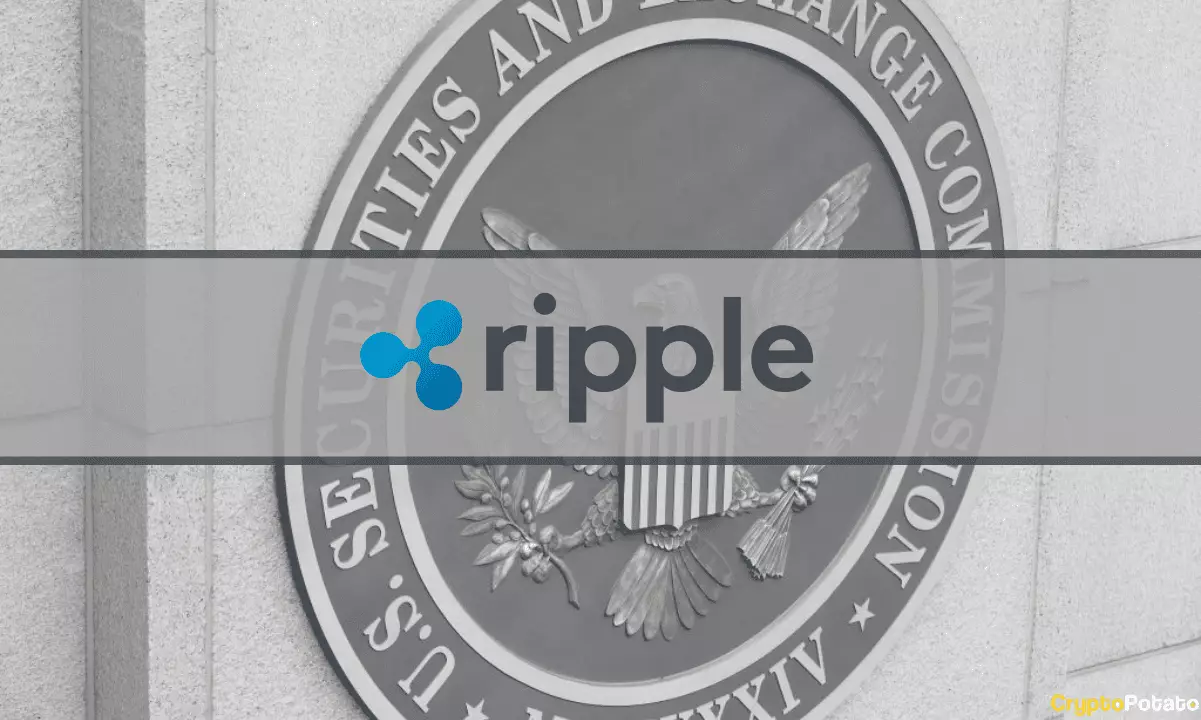On October 2, a crucial development in the ongoing legal saga between Ripple Labs and the U.S. Securities and Exchange Commission (SEC) emerged; the SEC filed a notice of appeal against a landmark 2023 ruling that favored Ripple. The ruling from Judge Analicia Torres deemed that the secondary sales of Ripple’s XRP token do not qualify as securities transactions under the SEC’s Howey test. This test, established by the U.S. Supreme Court in 1946, outlines the criteria for classifying an investment contract, a designation that enforces stringent regulatory oversight. The SEC’s choice to appeal signals not just an attempt to overturn this ruling but also challenges the burgeoning narrative around digital asset regulations.
Ripple’s Chief Legal Officer, Stuart Alderoty, expressed his dissatisfaction with the SEC’s decision to continue its legal battle, describing the appeal as “disappointing, but not surprising.” His statement underscores a growing frustration among crypto stakeholders regarding what they perceive as the SEC’s aggressive approach toward an industry that is still finding its regulatory footing. Alderoty further emphasized that the court had already dismissed the SEC’s allegations of recklessness on Ripple’s part, stating there were no claims of fraud or actual financial loss for the investors involved. This rejection of the SEC’s narrative suggests a significant gap between regulatory bodies and the realities of the cryptocurrency sector.
This regulatory conflict raises profound questions about the future of cryptocurrency oversight in the U.S. Ripple’s leadership has suggested that the SEC is engaged in a form of “litigation warfare” against innovative technologies, reinforcing the idea that the agency’s actions may be stifling innovation rather than protecting consumers. This perspective resonates heavily as other crypto companies watch the unfolding developments with trepidation, worried that they might be the next targets of regulatory scrutiny.
The fallout from the SEC’s appeal reached beyond legal nuances; it impacted the market dynamics surrounding XRP. Following the SEC’s announcement, XRP experienced a steep drop in value, plummeting by 12%. The asset had been trading over $0.60 prior to the news, but it fell below $0.53 during early trading hours in Asia. This decrease represents not only market volatility but also the fragility of investor confidence in regulatory environments surrounding cryptocurrencies. With XRP trading at its lowest in three weeks and remaining significantly down from its all-time high, weakened investor sentiment can trigger considerable market instability, crucial for trading strategies.
Furthermore, the ongoing legal battles illustrate how regulatory uncertainties can be detrimental to market growth and investor security. The aggressive selling by XRP holders reveals anxiety translating into tangible financial actions, indicating that many investors remain apprehensive about the long-term viability of XRP amid such legal turbulence.
The implications of the SEC’s actions have also sparked discussions beyond the immediate financial community. Political figures such as John Deaton, a candidate for Massachusetts Senate, have voiced strong opinions, labeling the SEC’s pursuit as “gross overreach.” His involvement and willingness to critique the agency speak to a growing politicization of crypto regulation, highlighting how important these issues are becoming in electoral discourse. The intertwining of legal battles and political commentary illustrates the multifaceted implications of the Ripple case, affecting not just the parties involved but the wider cryptocurrency community, potential investors, and the regulatory landscape itself.
Deaton’s passionate remarks reflect a broader discontent within the sector, urging for more reasonable regulations that foster innovation without stifling growth. As crypto remains a focal point in conversations about the economy and technological advancement, calls for fairness and clarity in regulations become increasingly pertinent.
The situation surrounding Ripple and the SEC is a microcosm of the larger debates occurring within the cryptocurrency space. As the tech continues to challenge traditional financial paradigms, the response from regulatory bodies will shape the industry’s future trajectory. For Ripple, the struggle against the SEC could serve as a defining moment that either solidifies its position in the market or complicates its growth prospects. The community, the market, and investors are left to ponder: what does this appeal mean for the long-term legitimacy of cryptocurrencies in the eyes of the law? The critical responses and growing advocacy for clear regulations will likely be a pivotal force as the industry moves forward. The outcome of this case could very well redefine the boundaries of what constitutes a security in the digital age and influence future legal frameworks for cryptocurrencies.








